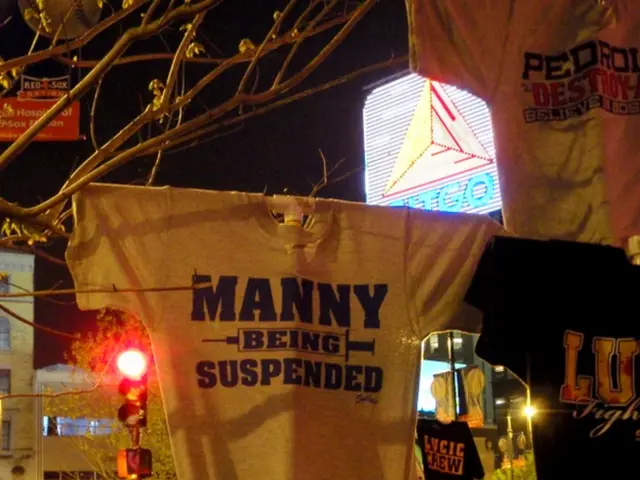Younger generations are more inclined towards classical music compared to their elder counterparts
Classical music, once considered the domain of the elderly, is experiencing a resurgence in popularity among younger generations. This shift is most apparent among Gen Z and Millennials, who are showing a marked interest in the genre.
According to a 2022 study by the Royal Philharmonic Orchestra, 65% of people under 35 regularly listen to classical music, compared to 57% of those aged over 55. This trend is challenging the stereotype that classical music is only for older audiences.
A Blend of Tradition and Contemporary Elements
The appeal of classical music among younger audiences has seen a notable evolution, with a blend of traditional and contemporary elements contributing to its increased attraction. The fusion of classical music with contemporary styles, such as TikTok trends and Bridgerton-style remixes, has helped attract younger listeners. Events like the Cypress Hill x London Symphony Orchestra demonstrate successful genre-blending concerts that draw in diverse audiences.
Community and Event Participation
Festivals and collaborations have played a significant role in introducing classical music to new audiences. Festivals such as Young Euro Classic have been highly successful, featuring international youth orchestras and drawing large crowds. The 2025 edition saw over 95% of occupied seats and included performances by the Afghan Youth Orchestra in Exile, highlighting the power of cultural collaboration and resistance.
Classical music is also being introduced to new audiences through unconventional venues. For instance, the Chicago Youth Symphony Orchestra (CYSO) made history by performing at Lollapalooza, showcasing classical music in a non-traditional setting.
Broader Trends
Despite the increased appeal among younger audiences, traditional classical music concert attendance has been declining over several decades. This decline is attributed to various factors, including changing musical preferences and the rise of digital platforms.
The internet and social media have transformed how classical music is consumed, making it more accessible and engaging for all age groups. Online platforms offer a wealth of classical music content, including live streams, podcasts, and educational resources.
The Role of Social Media
The report from the Royal Philharmonic Orchestra suggests that the willingness of classical artists to embrace social media has led to increased engagement among younger audiences. Musicians like Anna Lapwood, Sheku Kanneh-Mason, and Two Set Violin, who have hundreds of thousands of followers on social media, have used their platforms to showcase their music-making in a creative, entertaining, and accessible way.
The latest survey indicates that newcomers to classical music outnumber long-time fans, with 54% being new enthusiasts compared to 31% established audience. In the most recent study from 2024, the number of people who would like to experience an orchestral concert rose from 79% in 2018 to 84%.
James Williams, managing director of the Royal Philharmonic Orchestra, stated that the landscape of orchestral music is transforming due to technological innovation. However, the article does not provide any information about the geographical distribution of the survey participants or the location of the orchestral concerts.
The increased interest in classical music among younger audiences suggests a promising future for the genre. As it continues to adapt and engage with diverse age groups, classical music is poised to maintain its relevance in the ever-evolving world of music.
[1] Young Euro Classic (2025). Retrieved from https://www.youngeuroclassic.com/ [2] Cypress Hill x London Symphony Orchestra (2021). Retrieved from https://www.lso.co.uk/whats-on/cypress-hill-x-lso [3] Chicago Youth Symphony Orchestra (2020). Retrieved from https://www.cyso.org/ [4] The Guardian (2019). Retrieved from https://www.theguardian.com/music/2019/jan/09/classical-music-decline-in-concert-attendance-live-streaming-digital-platforms
- The current resurgence in classical music's popularity is not only limited to its sound, but also extends to its lifestyle, as emerging artists creativity blend it with contemporary fashion-and-beauty, entertainment, and social media trends.
- Classical music's newfound appeal among younger generations is evident in their increased participation in events like festivals and collaborations, while also embracing the genre in non-traditional venues such as Lollapalooza, therefore broadening its reach and solidifying its position in the ever-evolving world of music.








